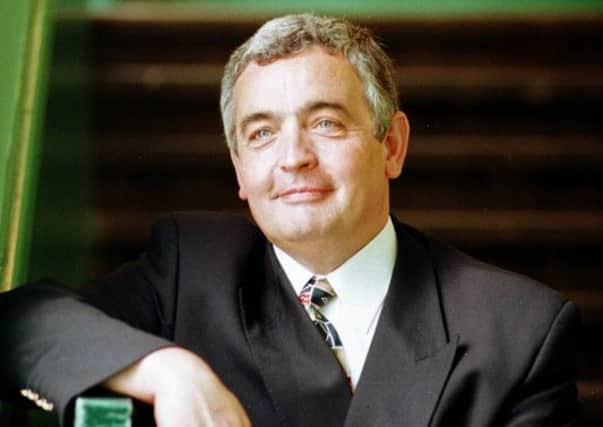Obituary: David Eaglesham, teacher and SSTA general secretary


David Eaglesham was the multi-faceted leader of Scotland’s Secondary Teachers’ Association (SSTA), who steered the organisation through a period of exceptional change with brio and unbridled enthusiasm.
He had been at the chalk face for 20 years before taking on the senior union role and brought a wealth of practical experience and knowledge of the challenges of the profession to the post.
Advertisement
Hide AdAdvertisement
Hide AdHe also had the management skills – combined with a considerable dash of charm – that enabled him to influence others in the education sphere, from lay members to education officials and politicians.
As a result, he made a major contribution to education in Scotland, helping to thrash out the McCrone Agreement and giving voice to the secondary view at home while increasing his own organisation’s profile on the international stage.
A Glaswegian, whose own education was at Victoria Drive Secondary School in Scotstoun, he continued his studies at Glasgow University before completing teacher training at the city’s Jordanhill College of Education.
His first teaching post, in 1973, was at Govan High School, where he taught history and modern studies for four years before leaving the profession to become a department manager at Marks & Spencer.
But a year later, in 1979, he was back teaching again, this time at Mearns Castle High School in Newton Mearns, just outside Glasgow.
He moved to Cathkin High School, Cambuslang, as principal teacher of modern studies in 1982, where he was to remain for 12 years during which time he became involved in sport, exchange trips and musical productions.
He gave up his free time to help with the rugby teams on a Saturday morning, spent many years developing links between young people in Glasgow and Nuremberg and organised school trips to Holland and Germany which resulted in lasting friendships with teachers abroad.
Imbued with a sense of humour and fun, which made him popular with both staff and pupils, he was also a keen singer and musician. He became heavily involved in school musical productions wherever he taught and once declared on his CV: “I am, in fact, an opera singer waiting to be discovered.”
Advertisement
Hide AdAdvertisement
Hide AdIt was while working at Cathkin High that his sense of fairness and justice provided the catalyst for a full-time move to the teaching union the SSTA.
In the 1980s he had been district secretary of its Glasgow division and later convenor, and was the driving force of the Strathclyde Executive which represented the interests of almost half the SSTA’s total membership.
Described by the union as always a fair negotiator, motivated by the single aim of achieving the best result for teachers, he became assistant general secretary in 1994 and proved an able match for senior education officials then, such as education director Keir Bloomer and Strathclyde Education Authority chief Frank Pignatelli.
Two years later, following the deaths of his predecessors Alex Stanley and Alan Lamont in 1995 and 1996, he was elected general secretary.
During his 12 years of service in the top post he was one of the chief negotiators of the McCrone Agreement on teachers’ pay and conditions, and worked tirelessly to promote the SSTA beyond Scotland.
He believed the union should punch above his weight and succeeding in raising its status nationally and abroad, including in Brussels, where the SSTA was given responsibility for administering a European Trade Union Committee for Education election.
At home he modernised the union’s practices, introducing district secretaries to new technology, successfully managing a string of presidents with his own brand of charisma and empowerment and directing the organisation’s move from Edinburgh’s Dundas Street to the capital’s Dalry with indefatigability.
He retired early from the SSTA at the end of 2008.
Outside work he was an occasional golfer, keen gardener and a member of St Michael’s Church in Linlithgow, where he was involved in music activities.
David Eaglesham is survived by his wife Doreen, three children and four grandchildren.
ALISON SHAW